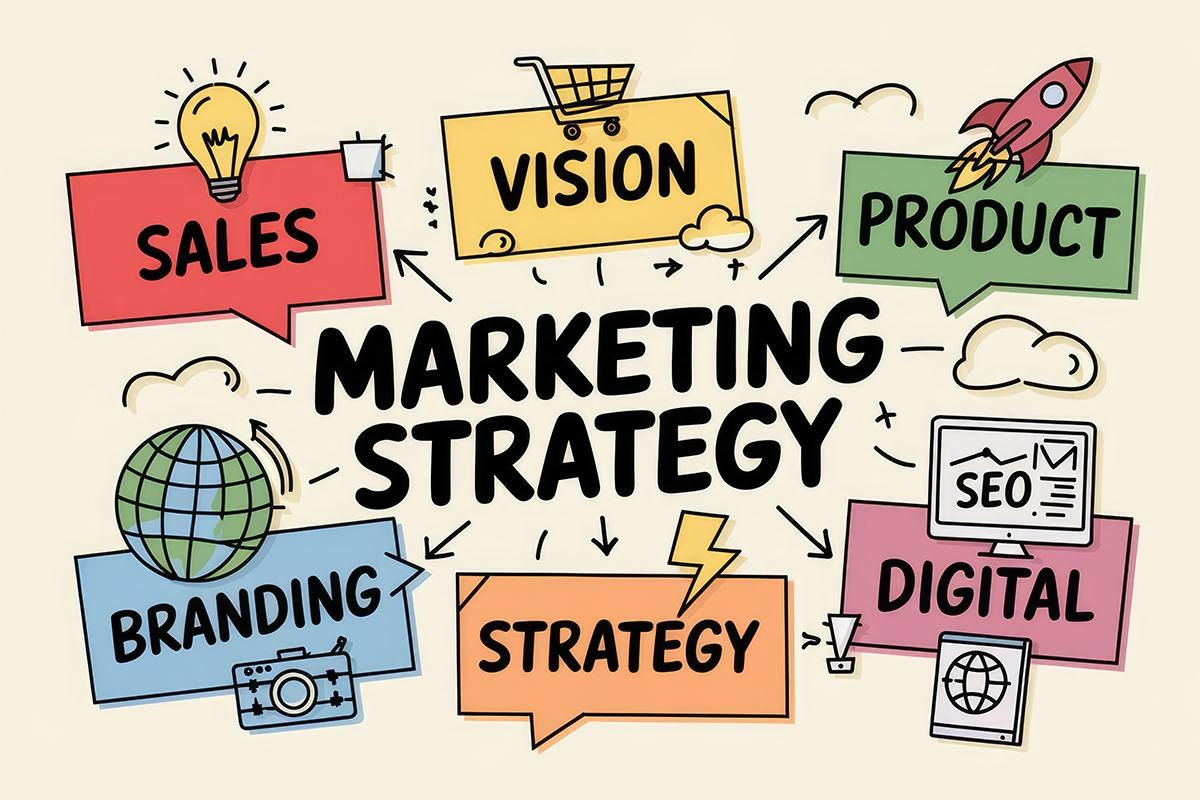Optimising for Brand SEO

- May 12, 2025 modified: May, 13 2025
Optimising for Brand SEO
Optimising for Brand SEO: How eCommerce Can Capitalize on Branded Search
Visibility isn't just about ranking for the most searched keywords, it's about being present when buyers already know what they want.
This is where Brand SEO comes into play. Optimising for branded search queries — like "Nike running shoes" or "Apple AirPods sale" — taps into a powerful stream of high-intent traffic. These users are already aware of a brand and are now actively looking to purchase or compare.
While traditional SEO often focuses on broad, generic keywords, brand-focused SEO focuses on specific product lines, brand names, and company-related terms.
Let's explore how e-commerce stores can build their strategy around existing brand demand, optimise for branded queries, and blend SEO with smart advertising to create a performance-driven sales funnel.
Why Brand SEO Matters in eCommerce
Branded search queries are often overlooked in favor of broader SEO tactics, but they're some of the most valuable traffic sources in e-commerce. When a user types in a brand-specific term like "Samsung smart TV" or "Buy Vans sneakers," they've already moved down the funnel.
They're not browsing — they're shopping with intent.
- Higher Click-Through and Conversion Rates: Users searching for branded products are more likely to click on results that include the brand name, and even more likely to complete a purchase. They've often done their research, trust the brand, and are ready to act.
- Consumer Trust Is Built In: Established brands come with built-in credibility. By aligning your store with these brands through optimized product pages and targeted content, you borrow that trust — and remove friction in the buying decision.
- Lower Cost per Acquisition (CPA): Whether through organic rankings or targeted ads, branded keywords tend to have lower competition and better conversion metrics, reducing your overall marketing spend.
- Increased Visibility in Competitive Niches: In saturated markets, ranking for high-volume generic terms can be difficult. Brand-focused SEO allows smaller eCommerce businesses to find more accessible entry points and reach customers at the decision-making stage.
Understanding the value of branded search is only the first step, the real advantage comes when you combine organic optimisation with a paid strategy.
Blending SEO with Branded Search Advertising
While SEO helps you gain long-term visibility, search advertising provides immediate exposure.
When combined, they create a powerful synergy. For eCommerce brands looking to dominate branded search real estate, blending organic and paid strategies ensures you don't just appear — you stand out.
1. Own the Entire Search Results Page
When someone searches for a branded product you sell — whether it's "Canon DSLR camera" or "Birkenstock sandals" — showing up in both paid ads and organic results increases your chances of capturing the click. It reinforces legitimacy and gives the impression that your store is a trusted destination for that brand.
2. Target High-Intent Branded Keywords
Branded ads usually have lower cost-per-click (CPC) than generic keywords and convert better. By bidding on brand-related search terms, you position your store right where motivated buyers are already looking. This works whether you're promoting your own brand or selling well-known third-party products.
3. Competitive Bidding and Brand Defense
If you're not advertising on branded terms, your competitors might. Bidding on your own brand name or those of popular products you sell helps defend your brand space and keep rivals from diverting your traffic. On the flip side, some eCommerce stores also run strategic competitor campaigns, bidding on rival brand names (within ethical and legal limits) to redirect potential customers to their own offerings.
4. Reinforce SEO with Retargeting
Use paid ads to retarget users who visited your brand or product pages via organic search. This keeps your brand top-of-mind and nudges users toward conversion, especially if they were in the research phase during their first visit.
5. Use Ad Data to Inform SEO Strategy
Paid campaigns provide fast feedback. If a branded keyword performs well in Google Ads, consider optimising landing pages or blog content around that term organically. This data-driven loop helps refine your SEO based on real search behavior.
Technical SEO for Branded Pages
To fully capitalise on branded search, your technical SEO needs to support visibility, clarity, and performance. Even the strongest brand presence won't convert if your product pages are slow, confusing, or poorly structured for search engines.
1 Use Structured Data Markup
Implement schema markup (such as Product, Review, and Breadcrumb schema) to help search engines better understand your content. This enhances your listings with rich results like star ratings, pricing, and availability.
2. Optimise Title Tags and Meta Descriptions with Branded Terms
Ensure product titles and meta descriptions naturally include the brand name and specific model or product type. Avoid keyword stuffing — aim for clarity, relevance, and a compelling call to action.
3. Create Clear, Brand-Specific URL Structures
Example: yourstore.com/adidas/mens-ultraboost
Clean, brand-focused URLs signal relevance to both users and search engines, improving SEO and user experience.
4. Improve Page Speed and Mobile Responsiveness
Branded product searches often come from mobile devices. Ensure fast loading times, responsive design, and a seamless checkout process to reduce drop-offs.
5. Internal Linking and Brand Hubs
Link brand-specific content (like reviews, comparisons, and blogs) to related product pages. Consider creating dedicated brand landing pages to showcase your full inventory for each brand — a helpful signal for search engines and a smoother experience for users.
Do's and Don'ts of Brand SEO for eCommerce
While optimising for brand SEO offers powerful benefits, it also comes with risks. Here are common mistakes eCommerce businesses should avoid.
| Don'ts ❌ | Do's ✅ |
|---|---|
| Don't stuff brand names excessively — it hurts readability and may trigger penalties | Use branded keywords naturally in product titles, meta descriptions, and content |
| Don't copy-paste manufacturer descriptions or duplicate content from other sellers | Create unique content for product and category pages, even when selling well-known brands |
| Don't use competitor logos or brand names in misleading ways, this can result in legal action or ad disapprovals | Ensure compliance with trademark guidelines when using brand names in ads or content |
| Don't assume every branded query means purchase intent — misalignment can increase bounce rates | Optimise for intent — some branded searches are informational (e.g., reviews), not transactional |
| Don't rely solely on generic category pages to capture branded search traffic | Build dedicated brand landing pages with well-structured, SEO-friendly URLs |
| Don't set-and-forget your ad strategy — branded ad performance changes over time | Test and refine branded ad campaigns based on performance data |
Optimising for brand SEO is more than just adding popular brand names to your product titles. It's a strategic blend of organic search, paid advertising, and technical excellence — all aligned with how users naturally shop.
By tapping into the trust and demand already built around established brands, eCommerce businesses can meet customers where they are and guide them toward conversion with less resistance and more relevance.
Search News Articles...
Recent Articles

Keywords no longer as visible in GSC
- Jan 12 2026
- /
- 338

Unique Web Systems Matter in a World of Sameness
- Dec 26 2025
- /
- 250

Most AI Websites Fail to Rank
- Nov 18 2025
- /
- 500

Sitemap.xml Best Practices
- Oct 14 2025
- /
- 2299

Fake Reviews on Google My Business
- Oct 07 2025
- /
- 668

Sending Emails from Code
- Sep 17 2025
- /
- 727

US Tariff Shifts Undermining eCommerce
- Sep 05 2025
- /
- 912

Small Business Success Formula
- Aug 23 2025
- /
- 671

Do Strong CTAs Help or Hurt Your Website?
- Jul 31 2025
- /
- 894

AI Crawlers vs Search Crawlers
- Jul 04 2025
- /
- 1207
View All News Articles
Categories
A Gold Coast SEO and Web Developer